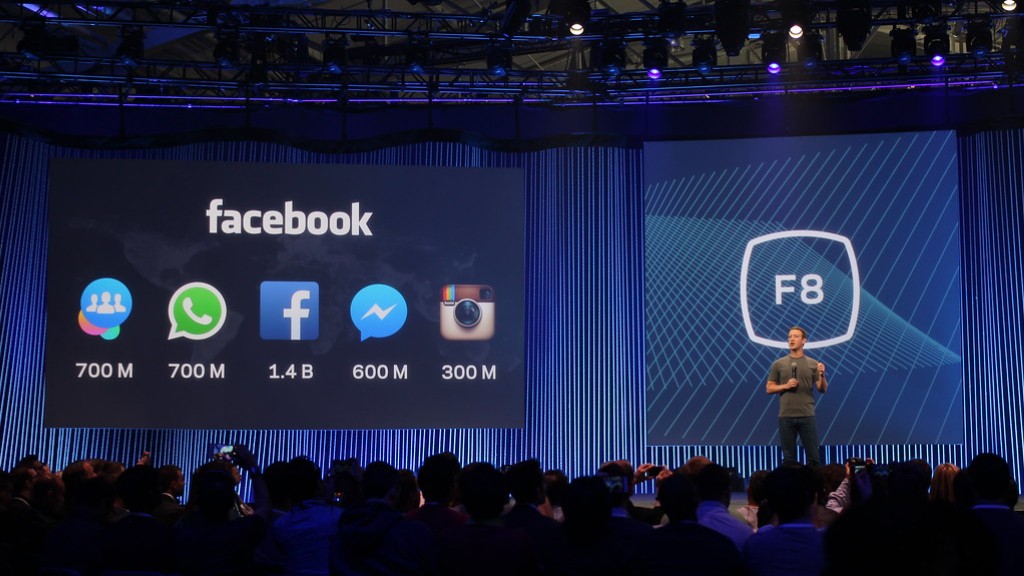Facebook marketing can be a great way to connect with potential customers and promote your business. However, it can be difficult to keep track of your Facebook marketing campaign if you do not have a plan or a system in place. This article will provide some tips on how to track your Facebook marketing campaign so that you can see what is working and what is not.
There is no one-size-fits-all answer to this question, as the best way to track Facebook marketing will vary depending on your specific goals and objectives. However, some tips on how to track Facebook marketing effectively include setting up measurable goals and KPIs, using marketing analytics tools to track key metrics, and regularly monitoring your results to optimize your campaigns.
How can I monitor Facebook marketing?
Ads Manager provides a variety of reports and metrics that you can use to track the performance of your ads. To view these reports, go to the “Campaigns” tab, then click on the “Ad sets” or “Ads” tab. From here, you can click on the “View charts” button to open the insights side pane. This pane will provide a visual representation of your ads performance, as well as a variety of other reports and metrics.
Google Analytics is a powerful tool that can help you track your website traffic and understand where your visitors are coming from. Once you have it set up, there’s no need to do anything special to connect it to Facebook – Analytics will track all your Facebook traffic automatically. This can be extremely useful in understanding which of your marketing efforts are paying off, and where you should focus your energies in the future.
How are Facebook ads tracked
A Custom Audience pixel is used to track visits, page views, and used to retarget to website visitors. A conversion pixel is used to track conversions like sales, sign-ups, and it’s used for reporting.
If you’re looking to see how much traffic your Facebook Ads campaign is generating, the best place to start is in your Google Analytics account. Once you login, go to Acquisition > Campaigns > All Campaigns and search for your campaign name. Alternatively, in the Acquisition drop-down menu, click Source/Medium and then select Facebook Ads. Both will show you Google Analytics data derived from your Facebook traffic.
Which is the tool used to track Facebook posts and advertisements?
Facebook Analytics is a powerful tool that can help you track your growth, engagement, and monetization efforts across Facebook. With Facebook Analytics, you can see how your content is performing, identify which posts are driving the most engagement, and track your progress over time. You can also use Facebook Analytics to track your ad performance and optimize your campaigns for better results.
The Reports button in the top-right of your reporting table allows you to export data as a CSV or Excel file. To export data, click Reports and then select Export table data. Choose the type of file you want and then click Export.
How much does Facebook Analytics cost?
Facebook analytics tool is free and it covers over 250 metrics. With this tool, you can easily generate reports and customize them according to your needs. Prices for the full suite start at $100/month, but you can get a 14-day free trial to test it out first.
Buffer is a great social media analytics tool that can help you measure your Facebook performance, create reports for your clients, and grow your reach, engagement, and sales. You can see all the data in one intuitive analytics dashboard, which makes it simple to use and a great tool to improve your social media strategy.
What Facebook analytics should I track
An engagement rate is a metric that measures the number of user interactions with a piece of content divided by the number of total impressions. This interaction can be a like, share, comment, or click.
Reach is the number of unique users who have seen your content. Impressions are the number of times your content has been seen.
Followers growth is the rate at which your number of followers is increasing.
Click-Through Rate (CTR) is the number of clicks your content receives divided by the number of impressions.
Cost per Click (CPC) is the amount of money you spend on a click. Cost per Thousand Impressions (CPM) is the amount of money you spend on one thousand impressions.
The best time to post is when your audience is most active on social media.
There is no doubt that tracking tools like the Facebook Pixel are very handy for websites and online retailers. They enable these businesses to get vital information about their visitors, including whether they come back. However, it is important to remember that a vast number of third parties are using Facebook’s advertising and tracking technologies. This means that it isn’t just Facebook you need to worry about. There are many other companies out there who are collecting data on you. Be sure to be aware of this and take steps to protect your privacy.
What should you not do on Facebook ads?
When creating a Facebook ad, it is important to be honest and upfront with the viewer. Do not try to bait them with false information or ignore potential mobile users. It is also important to keep your campaign fresh and not on auto-pilot. Be sure to target your audience and include a clear call-to-action. Set a budget that makes sense for your ad and be sure to proofread it before publishing.
Ad tracking is a common online practice used by companies to collect data about user behavior. This information is then used to deliver more targeted ads to the user. Ad tracking can be done using cookies, web beacons, and other tracking methods. Ad tracking is generally considered to be a harmless practice, but some users may prefer to disable it.
How do I track my marketing campaign
There are a few key ways to track marketing campaigns:
1. Customer relationship management (CRM) tracking: This involves tracking interactions with potential and existing customers, in order to cultivate relationships and improve customer satisfaction.
2. Call tracking: This involves using a unique phone number for each campaign, in order to track which ads are driving call volume.
3. Ad network conversion tracking: This involves setting up conversion tracking with your ad network, in order to track which ads are driving conversions.
4. Unique uniform resource locators (URLs): This involves using unique URL parameters for each campaign, in order to track which ads are driving traffic to your website.
5. Key performance indicator (KPI) dashboard: This involves tracking key performance indicators (KPIs) for each campaign, in order to track and compare campaign performance.
6. Social media monitoring: This involves monitoring social media channels for mentions of your campaign, in order to track reach and engagement.
7. Create SMART goals: This involves setting specific, measurable, attainable, relevant, and time-bound goals for each campaign, in order to track progress and success.
8. Design clear branding for the campaign: This
Google Analytics uses first-party cookies to capture data about web visitors. However, if a user doesn’t accept cookies or has JavaScript disabled, then Google Analytics can’t track their touchpoints. On the flip side, Facebook doesn’t require cookies to track clicks on an ad.
If you’re looking for a free social media listening tool, Hootsuite is one of the best options out there. It covers multiple social networks, including Twitter, Instagram, Facebook, LinkedIn, YouTube, Pinterest, and TikTok. With Hootsuite, you can track key phrases, Hashtags, and competitors across all of these platforms, and more. Brand24, Agorapulse, Awario, YouScan, Zoho Social, Buffer, Loomly, and ListenMore are also great options for social media listening.
The best Facebook marketing tools are:
1. SocialPilot: Social media marketing tool
2. ShortStack: Marketing platform for contests and giveaways
3. Post Planner: Social media posting tool
4. Socialbakers: Social analytics tool
5. Pagemodo: Facebook page customization tool
6. Headline Analyzer: Facebook post headline analyzer
What is Facebook marketing tool
Facebook’s tools are designed to help businesses create authentic relationships with their customers. Through Facebook, businesses can distribute quality content and connect with consumers who are interested in their brand. Additionally, Facebook provides sales and customer service representatives with the ability to connect with consumers and address any concerns they may have. Overall, Facebook is an extremely useful tool for businesses that want to build strong relationships with their customers.
Data is a powerful tool for content marketing. By understanding what data is available and how to use it, marketers can create content that is more relevant and engaging to their audience. Additionally, data can help marketers better understand what content is most effective and how to optimize their content marketing efforts.
Conclusion
There is no one definitive answer to this question, as each business’ facebook marketing activities will vary depending on their goals and objectives. However, some tips on how to track facebook marketing progress could include monitoring engagement rates (likes, comments, shares, clicks) on posts, analyzing post reach and advertising click-through rates, and keeping track of any new leads or sales generated from facebook.
Overall, Facebook marketing can be a very effective way to reach out to potential customers and grow your business. However, it is important to keep track of your efforts so that you can see what is working and what is not. There are a number of tools and resources available that can help you do this, so make sure to take advantage of them. With a little bit of effort, you can create a successful Facebook marketing campaign that will help you reach your goals.





